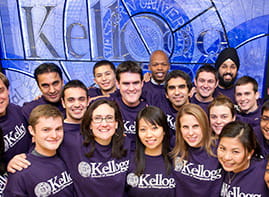As a buyer and builder of urgent care centers, Andrea Malik Roe is redefining what it means to do well and do good
1/12/2016 -
Editor's Note: In the Start Me Up series, the Kellogg School spotlights members of the Kellogg community who are bringing bold entrepreneurial visions to life.
Sometimes, being an entrepreneur means swallowing your pride and grabbing a toilet plunger.
Just ask Andrea Malik Roe ’07. On her first day as the owner-operator of several urgent care centers, the co-founder and chief financial officer of
CRH Healthcare plunged toilets and dragged a waterlogged cigarette receptacle into the trash — all while wearing a business suit. Then, without missing a beat, Roe moved on to the next course of business: putting the centers on a new playbook to tighten up their operations, stabilize their financial health and turn them into the Southeast’s top providers of quality urgent care.
Three years later, Roe is enjoying the fruits of her scrappiness. As of August 2015, CRH Healthcare became the leading owner and operator of urgent care centers in the metro Atlanta area, serving a resident population of 5.6 million. It now owns a total of 19 centers, including those under the brands of Physician Immediate Med, MD Minor Emergency, and Peachtree Immediate Care and Urgent Medcare.
These centers will be rebranded under a single banner in the metro region for scale economies. These acquisitions put CRH on track, Roe says, to owning 50 centers in five years.
The case for growth
Roe spent more than a decade in private equity before co-founding CRH in June 2012 with Bill Miller, one of her former colleagues at private equity firm Arcapita. Roe and Miller were among the first investors to recognize that urgent care was one of the most fragmented yet fastest-growing sectors in health care — and thus was rife with investment opportunity.
Getting investors to back that idea, however, was initially a challenge. Roe and Miller had to convince private equity firms to provide backing for acquisition deals even before those deals were inked. “So the money would say, ‘I need a deal to look at to tell you whether I’m going to invest,’” says Roe. “And the deals would say, ‘I’m not going to let you look at us until you tell us you have the money.’ We were trying to push both of those balls down the field at the same time.”
In addition, some private equity firms weren’t keen on the idea of making smaller deals for aggregate earnings. “We had people offering a $25-50 million dollar equity line, but they wanted the first deal to have $5 million in EBITDA (Earnings Before Interest, Taxes, Depreciation and Amortization),” Roe says. “But because the industry was so fragmented, there were probably only 10 companies in the entire industry that had $5 million in EBITDA and they were trading for double-digit multiples. The opportunity here is to buy small companies with two to four centers and grow that into 20 to 25 centers. You get huge multiple expansion because there’s scarcity on the high end of people who’ve been able to get to that critical mass.”
After pounding the pavement for nearly six months, Roe and Miller made a deal with Source Capital, a private equity firm that understood the sector and the CRH strategy. Five days later, they secured the company’s other missing piece: a Letter of Intent from an urgent care practice that wanted to move forward with an acquisition.
Community matters
Luck may have played a role in securing that first deal, but Kellogg was the driving force behind CRH’s biggest investor to date.
While looking for private equity sponsors, Roe reached out to Peter Pettit ’07, one of her peers from the One-Year MBA Program who was a partner at MSouth Equity Partners.
“Traditionally, MSouth does not invest in health care deals,” Roe says. “But I called Peter and got them ramped up quickly. Because of our history, they could move fast and had trust in our abilities as a management team to support the deal with a winning valuation. It’s really because of our Kellogg connection that MSouth became our lead investor.”
Kellogg also equipped Roe with the skills needed to run operations in the people-centric business of urgent care. She points to the lessons of Clinical Professor of Strategy
Harry Kraemer ’79 — in particular “Remember the cube ” — as informing her leadership decisions as she works to engage a workforce that’s apt to clock in and clock out. “It’s about trying to motivate employees to do the right thing, even if they aren’t necessarily incentivized to do it,” she says.
To that end, Roe provides all of her employees and their immediate family members with $25 unlimited urgent care visits at the centers. She tries to help her workers problem-solve when faced with personal or professional crises. And she’s tried to create a family-like culture in the workplace. For example, when a pregnant employee expressed concerns about the financial strain associated with having a baby, Roe brought her some baby items, toys and clothes from her home.
“We’re in the business of taking care of people,” Roe says. “If we can’t take care of our own, then what are we doing taking care of you?”
There’s a business benefit to treating people well, too. “What really drives growth is having the right people on the bus,” Roe explains. “We want to be a community place, where people trust us with their health care and their lives.”
Read more in the Start Me Up Series:






